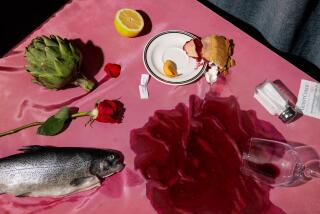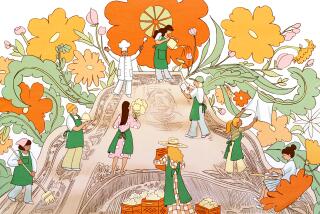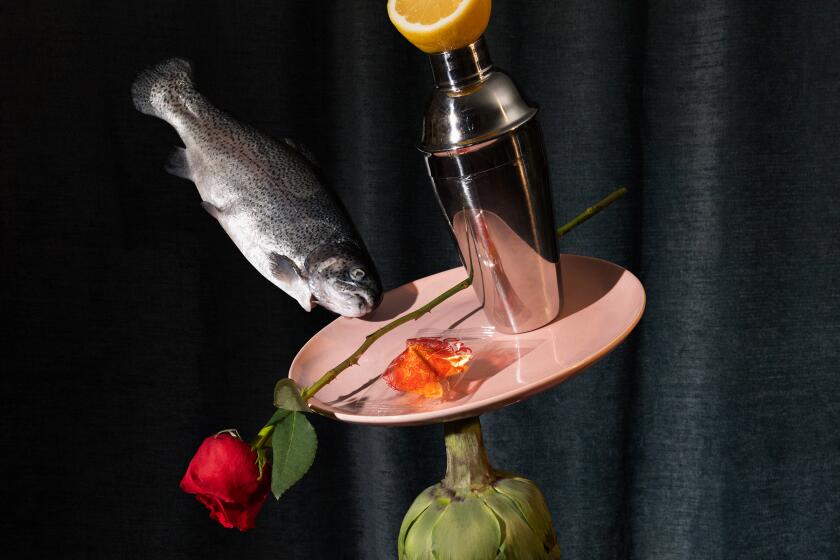Chef Ferran Adrià, the greatest?
In January, Ferran Adrià announced that at the end of the 2011 season he planned to close El Bulli, his mythic restaurant on Spain’s Costa Brava, with plans to reopen it two years later as a foundation, in which food service will be only a part. El Bulli has often been called “the best restaurant in the world” (whatever that means). Of course, it has been called many other things as well: an art performance space, a miracle, a shrine, sheer heaven, pure hell. I’m always a little surprised, in fact, by the diversity — and intensity — of the reactions a meal at El Bulli engenders.
Granted, the experience is genuinely unique. It’s not just a matter of unusual food, of unexpected combinations and unfamiliar forms — the famous spherifications and deconstructions and the like that have influenced chefs all over the world.
It’s the whole package, and the interplay between its parts: the daunting drive (or taxi ride) through eerie landscapes to a cove at the end of the world; the country-inn welcome and the personal greeting by the surprisingly low-key and vaguely teddy-bearish Adrià himself; the impeccably orchestrated service; the knockout wine list, which includes choices from 16 countries (even Canada and Switzerland) but could also serve you superbly from vineyards no more than a couple of miles away; and then the food.
And not just the food — not just (to pick a few dishes at random from recent years) the shiso Gummi Bears, gorgonzola rice balls, foie-gras-fat tagliatelle, artichokes with white rose petals, rabbit brains with sea anemone and oysters, and pork tail with mango and cilantro — but the progression of food, the symphony of contrasts, the 30-plus tiny offerings, alternately hot and cold, salty and sweet, familiar and outré, witty and provocative.
Still, the way people respond to El Bulli is fascinating to examine — and I think their reactions sometimes say as much about them as they do about the restaurant.
Anthony Bourdain, for instance, once proposed that, for a chef, having a meal at El Bulli was the equivalent of Eric Clapton’s going to hear Jimi Hendrix. “You come out thinking ‘What do I do now?’”
A lay diner, a retired San Francisco attorney named Tim Savinar, was quoted in the Wall Street Journal as saying of his dinner there: “It might not have been the best meal I’ve ever eaten, but it was the best something. I just don’t know what.”
Slow Food founder Carlo Petrini, who considers himself a friend of Adrià’s, once told me that, for him, “going to El Bulli is like going to an amusement park. I like to go once a year to an amusement park. If somebody goes every day to an amusement park, though, they have a psychological problem.”
The El Bulli experience seems to rob at least some diners of all restraint. Chilean artist Juan Dávila wrote that his dinner “produced in me a Stendhal effect of dissociation, a surreal dream state and regression to childhood as if I was receiving heavenly drops from the mother’s breast.”
The Barcelona journalist Pau Arenòs once described the multi-course tasting menu as “the black stone of Mecca. Mona Lisa’s smile. The nucleus of the atom, the bank vault. The oval office of the White House. Love and sex ....”
Andreas Viestad of the Washington Post told readers that when he got home after his dinner at El Bulli, “I had a reaction similar to mourning, as if I had been allowed into an enchanted garden for one evening and had then seen the iron gate close irrevocably behind me when I left.” Giles Coren, restaurant critic for the Times in London, warned that to describe what he had eaten, “I may have to go all Joycean … and sing songs of the pinkysounding sugarprawn and flightybumblecheese of porkfish.”
French journalist Jean-François Chaigrean announced in Paris Match in 2001 that, having eaten at El Bulli, “I will never come back down to earth … I shall never dare to eat again in my life.” (I have been unable to find Chaigrean’s obituary, so I assume that he eventually changed his mind.)
A surprising number of the people who don’t like El Bulli have never been there. They just know it’s horrible, pretentious, phony, a con, so why would they bother?
German-born, Paris-based food and travel writer Jörg Zipprick had just one meal there, an abbreviated one after he made it known that he didn’t eat “glutamates.” Based on that meal, he wrote a book attacking El Bulli.
“I Don’t Want to Go Back to That Restaurant! How Molecular Cuisine Serves Us Wallpaper Paste and Fire-Extinguisher Powder” — pillories Adrià, and by extension the chefs he has most influenced, for such sins as taking support from chemical companies, claiming other peoples’ technical innovations as his own and virtually poisoning his customers by serving them food made with dangerous substances.
Adrià just shakes his head at such accusations — which have, more shockingly, been repeated and amplified by his fellow three-star Catalan chef Santi Santamaria of El Racó de Can Fabes. “What can I do?” he asks.
When an interviewer for the Italian trade magazine and website Chef di Cucina asked Zipprick, “How many people have died or been hospitalized after eating Ferran Adrià’s food?,” the writer replied, “I am not personally aware of cases of molecular cuisine-related deaths. However, many people have often complained of diarrhea and nausea, like the collector of wines, the Frenchman François Audouze.”
Audouze dined at El Bulli in 2007 with his wife. He loved it, according to an account of the meal on his blog. “Every moment is fascinating,” he wrote. “Each texture is studied, and the evolution of taste in the mouth is dazzling.... I went from wonderment to wonderment.” Unfortunately, he continued, “when we tasted a delicious mackerel, my wife told me that she tasted something strongly unpleasant, which I couldn’t taste. Shortly after, feeling ill, she went outside and didn’t finish her meal.” She spent the night being violently ill.
Though it is doubtful that any of the substances whose use Zipprick objects to would add detectable flavor — much less something “strongly unpleasant” — to food, Zipprick apparently considers this incident to be an example of “molecular” poisoning.
The aggrieved party, Audouze’s wife, on the other hand, was magnanimous: “I had an accident,” she told her husband, “which does not call into question the genius of the chef.” When Audouze asked if she’d like to go back to El Bulli, though, she replied “I’ll wait just a little.”
Andrews, a co-founder and onetime editor in chief of Saveur and restaurant columnist for Gourmet, is the author of “Ferran: The Inside Story of El Bulli and the Man Who Reinvented Food,” to be published in October by Gotham Books.
More to Read
Eat your way across L.A.
Get our weekly Tasting Notes newsletter for reviews, news and more.
You may occasionally receive promotional content from the Los Angeles Times.






